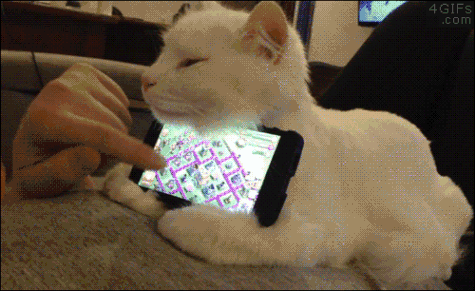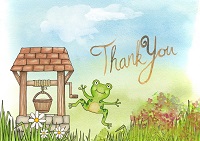Daily Archives: January 6, 2022
Getting Distracted
This is an edited extract from Four Thousand Weeks by Oliver Burkeman. It’s kind of long, and I did try to break it up into shorter, easier to read pieces. As you can see, I did not succeed. It’s a great article though, and well worth the time spent reading it. I’ve decorated it with some cute cat gifs because.. well… they’re distracting and fun which might help with the long read.
It hardly matters how committed you are to making the best use of your limited time if, day after day, your attention gets wrenched away by things you never intended to focus on.
Distraction truly matters – because your experience of being alive consists of nothing other than the sum of everything to which you pay attention. At the end of your life, looking back, whatever compelled your attention from moment to moment is simply what your life will have been. When you pay attention to something you don’t especially value, it’s not an exaggeration to say that you’re paying with your life.
This was why Seneca, in On The Shortness Of Life, came down so hard on his fellow Romans for pursuing political careers they didn’t really care about, holding elaborate banquets they didn’t especially enjoy, or just “baking their bodies in the sun”: they didn’t seem to realize that, in succumbing to such diversions, they were squandering the very stuff of existence.
Seneca risks sounding like an uptight pleasure-hater – what’s so bad about a bit of sunbathing? – and, to be honest, I suspect he probably was. But the crucial point isn’t that it’s wrong to choose to spend your time relaxing, whether at the beach or on BuzzFeed. It’s that the distracted person isn’t really choosing at all. Their attention has been commandeered by forces that don’t have their highest interests at heart.
All of which helps clarify what’s so alarming about the contemporary online “attention economy”, of which we’ve heard so much in recent years: it’s essentially a giant machine getting you to care about things you didn’t want to care about. And you have far too little control over your attention simply to decide, as if by fiat, that you’re not going to succumb to its temptations.
Social Media
Social media is engineered to constantly adapt to our interests. No wonder the rest of reality seems unable to compete.
Many of us are familiar with the basic contours of this situation. We know that the “free” social media platforms we use aren’t really free, because, as the saying goes, you’re not the customer but the product being sold. In other words, the technology companies’ profits come from seizing our attention, then selling it to advertisers.
You might also be aware that this is delivered by means of “persuasive design” – an umbrella term for an armory of psychological techniques borrowed directly from the designers of casino slot machines, for the express purpose of encouraging compulsive behavior.
One example among hundreds is the ubiquitous drag-down-to-refresh gesture, which keeps people scrolling by exploiting a phenomenon known as “variable rewards”: when you can’t predict whether or not refreshing the screen will bring new posts to read, the uncertainty makes you more likely to keep trying, again and again and again, just as you would on a slot machine.
What’s far less widely appreciated, though, is how deep the distraction goes, and how radically it undermines our efforts to spend our finite time as we’d like. As you surface from an hour inadvertently frittered away on Facebook, you’d be forgiven for assuming that the damage, in terms of wasted time, was limited to that single misspent hour.
But you’d be wrong. Because the attention economy is designed to prioritize whatever’s most compelling – instead of whatever’s most true, or most useful – it systematically distorts the picture of the world we carry in our heads at all times. It influences our sense of what matters, what kinds of threats we face, how venal our political opponents are – and all these distorted judgments then influence how we allocate our offline time as well.
If social media convinces you, for example, that violent crime is a far bigger problem in your city than it really is, you might find yourself walking the streets with unwarranted fear. If all you ever see of your ideological opponents online is their very worst behavior, you’re liable to assume that even family members who differ from you politically must be similarly, irredeemably bad, making relationships with them hard to maintain.
So it’s not simply that our devices distract us from more important matters. It’s that they change how we’re defining “important matters” in the first place. In the words of the philosopher Harry Frankfurt, they sabotage our capacity to “want what we want to want”.
I vividly recall walking alone along a windswept Scottish beach as dusk began to fall, when I experienced one particularly disturbing side-effect of persuasive design, which is the twitchiness you start to feel when the activity in which you’re engaged hasn’t been crafted by a team of professional psychologists hellbent on ensuring that your attention never wavers.
I love windswept Scottish beaches at dusk more passionately than anything I can ever remember encountering on social media. But only the latter is engineered to constantly adapt to my interests and push my psychological buttons, so as to keep my attention captive. No wonder the rest of reality sometimes seems unable to compete.
To make things more troublesome still, it can be difficult even to notice when your outlook on life is being changed in this depressing fashion, thanks to a special problem with attention, which is that it’s extremely difficult for it to monitor itself.
The only faculty you can use to see what’s happening to your attention is your attention, the very thing that’s already been commandeered. This means that once the attention economy has rendered you sufficiently distracted, or annoyed, or on edge, it becomes easy to assume that this is just what life these days feels like. In TS Eliot’s words, we are “distracted from distraction by distraction”.
The unsettling possibility is that if you’re convinced that none of this is a problem for you – that social media hasn’t turned you into an angrier, less empathic, more anxious or more numbed-out version of yourself – that might be because it has. Your finite time has been appropriated, without you realizing anything’s amiss.
As the technology critic Tristan Harris likes to say, each time you open a social media app, there are “a thousand people on the other side of the screen” paid to keep you there – and so it’s unrealistic to expect users to resist the assault on their time and attention by means of willpower alone.
Yet if we’re to understand distraction at the deepest level, we’ll also have to acknowledge an awkward truth at the bottom of all this, which is that “assault” – with its implications of an uninvited attack – isn’t quite the right word.
We mustn’t let Silicon Valley off the hook, but we should be honest: much of the time, we give in to distraction willingly. Something in us wants to be distracted, whether by our digital devices or anything else – to not spend our lives on what we thought we cared about the most. The calls are coming from inside the house.
Why Do We Want To Be Distracted?
Consider the archetypal case of being lured from your work by social media: it’s not usually that you’re sitting there, concentrating rapturously, when your attention is dragged away against your will. In truth, you’re eager for the slightest excuse to turn away from what you’re doing, in order to escape how disagreeable it feels to be doing it; you slide away to the Twitter pile-on or the celebrity gossip site with a feeling not of reluctance but of relief.
“One of the puzzling lessons I have learned,” observes the American author Gregg Krech, describing his own experience of that urge, “is that, more often than not, I do not feel like doing most of the things that need doing. I’m not just speaking about cleaning the toilet bowl or doing my tax returns. I’m referring to those things I genuinely desire to accomplish.”
It’s worth pausing to notice how exceptionally strange this is. Why, exactly, are we rendered so uncomfortable by concentrating on things that matter – the things we thought we wanted to do with our lives – that we’d rather flee into distractions, which, by definition, are what we don’t want to be doing with our lives? So that suddenly, the thing you’d resolved to do feels so staggeringly tedious that you can’t bear to focus on it for one moment more.
The solution to this mystery, dramatic though it might sound, is that whenever we succumb to distraction, we’re attempting to flee a painful encounter with our finitude – with the human predicament of having limited time and, more especially in the case of distraction, limited control over that time. When you try to focus on something you deem important, you’re forced to face your limits, an experience that feels especially uncomfortable precisely because the task at hand is one you value so much.
This is also why boredom can feel so surprisingly, aggressively unpleasant: we tend to think of it as not being interested in whatever it is we’re doing, but, in fact, it’s an intense reaction to the deeply uncomfortable experience of confronting your limited control.
Boredom can strike in widely differing contexts: when you’re working on a major project; when you can’t think of anything to do on a Sunday afternoon; when it’s your job to care for a two-year-old for five hours straight. But they all have one characteristic in common: they demand that you face your finitude. You’re obliged to deal with how your experience is unfolding in this moment, to resign yourself to the reality that this is it.
No wonder we seek out distractions online, where it feels as though no limits apply – where you can update yourself instantaneously on events taking place a continent away, present yourself however you like, and keep scrolling forever through infinite news feeds, drifting through “a realm in which space doesn’t matter and time spreads out into an endless present”, to quote the critic James Duesterberg.
This also makes it easier to see why the strategies generally recommended for defeating distraction – digital detoxes, personal rules about when you’ll allow yourself to check your inbox, and so forth – rarely work, or at least not for long. They limit your access to the things you use to assuage your urge towards distraction, but they don’t address the urge itself.
Even if you quit Facebook, or ban yourself from social media during the workday, or exile yourself to a cabin in the mountains, you’ll probably still find it unpleasantly constraining to focus on what matters, so you’ll find some way to relieve the pain by distracting yourself: by daydreaming, taking an unnecessary nap, or – the preferred option of the productivity geek – redesigning your to-do list and reorganizing your desk.
What we think of as distractions aren’t the cause of our being distracted. They’re just the places we go to seek relief.
The overarching point is that what we think of as distractions aren’t the ultimate cause of our being distracted. They’re just the places we go to seek relief from the discomfort of confronting limitation. The reason it’s hard to focus on a conversation with your spouse isn’t that you’re surreptitiously checking your phone beneath the dinner table.
On the contrary, “surreptitiously checking your phone beneath the dinner table” is what you do because it’s hard to focus on the conversation – because listening takes effort and patience and a spirit of surrender, and because what you hear might upset you.
Even if you place your phone out of reach, therefore, you shouldn’t be surprised to find yourself seeking some other way to avoid paying attention. In the case of conversation, this generally takes the form of mentally rehearsing what you’re going to say next, as soon as the other person has finished making sounds with their mouth.
So What Can We Do About It?
I wish I could reveal, at this point, the secret for uprooting the urge towards distraction – the way to have it not feel unpleasant to decide to hold your attention, for a sustained time, on something you value, or a task you can’t easily choose not to do. But the truth is that I don’t think there is one.
The most effective way to sap distraction of its power is to stop expecting things to be otherwise – to accept that this unpleasantness is simply what it feels like to commit ourselves to the kinds of demanding and valuable tasks that force us to confront our limited control over how our lives unfold.
And yet there’s a sense in which accepting this lack of any solution is the solution. The way to find peaceful absorption in a difficult project, or a boring Sunday afternoon, isn’t to chase feelings of peace or absorption, but to acknowledge the inevitability of discomfort, and to turn more of your attention to the reality of your situation than to railing against it.
Some Zen Buddhists hold that the entirety of human suffering can be boiled down to this effort to resist paying full attention to the way things are going, because we wish they were going differently (“This shouldn’t be happening!”), or because we wish we felt more in control of the process.
There is a very down-to-earth kind of liberation in grasping that there are certain truths about being a limited human from which you’ll never be liberated. You don’t get to dictate the course of events. And the paradoxical reward for accepting reality’s constraints is that they no longer feel so constraining.
- Radical Self Care Project Overview by shirleytwofeathers - No Comment
- Radical Self Care Image Gallery by shirleytwofeathers - No Comment
- It’s A Wrap by shirleytwofeathers - 3 Comments
- Something To Consider by shirleytwofeathers - 1 Comment
- Nurturing Your Precious Self by shirleytwofeathers - 3 Comments
me: Make Your Own Violet Fire
Abdulrahman: Money Chant – Very Fast
Shirley Twofeathers: It’s A Wrap
Daniel Knirs: It’s A Wrap
Shirley Twofeathers: It’s A Wrap










